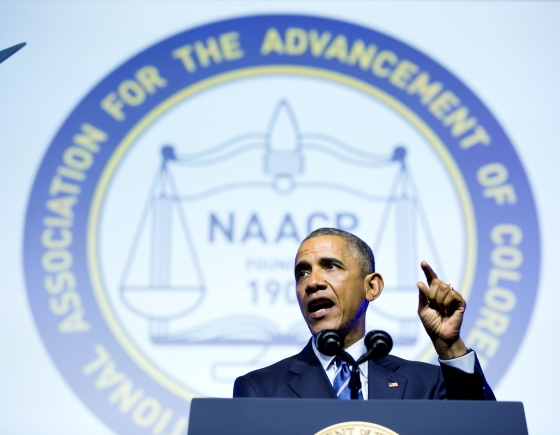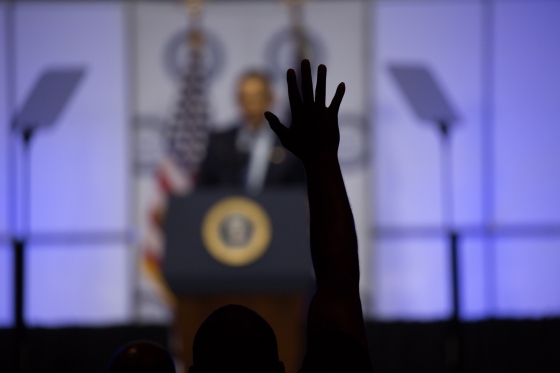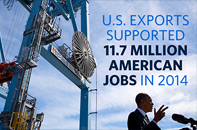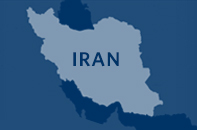President Obama: "Our Criminal Justice System Isn't as Smart as It Should Be"
Yesterday, the President traveled to Philadelphia to address the NAACP's 106th national convention. In his remarks, he laid out the reasons why we need to reform America's criminal justice system, and why we need to invest in our communities and expand opportunity for all Americans.
A quick look at the numbers:
- 2.2 million: The number of prisoners in the U.S. -- which has quadrupled from only 500,000 in 1980.
- 25 percent: The share of the world's prisoners that are in the U.S., even though we're only home to 5 percent of the world's population.
- 60 percent: The share of U.S. prisoners that are either African American or Latino. "About one in every 35 African American men, one in every 88 Latino men is serving time right now," the President said. "Among white men, that number is one in 214."
-
$80 billion: The amount we spend each year to keep people incarcerated in America. For $80 billion, we could:
- Provide universal preschool for every 3-year-old and 4-year-old in America
- Double the salary of every high school teacher in America
- Finance new roads, bridges, and airports; job training programs; research and development
- Eliminate tuition at every one of our public colleges and universities
As the President noted, today's criminal justice system "remains particularly skewed by race and by wealth," and has adverse ripple effects on our country's families and communities:
A growing body of research shows that people of color are more likely to be stopped, frisked, questioned, charged, detained. African Americans are more likely to be arrested. They are more likely to be sentenced to more time for the same crime. And one of the consequences of this is, around one million fathers are behind bars. Around one in nine African American kids has a parent in prison.
What is that doing to our communities? What’s that doing to those children? Our nation is being robbed of men and women who could be workers and taxpayers, could be more actively involved in their children’s lives, could be role models, could be community leaders, and right now they’re locked up for a non-violent offense.
"Mass incarceration makes our entire country worse off, and we need to do something about it." —@POTUS http://t.co/02KRTen3uf
— The White House (@WhiteHouse) July 15, 2015
What we're doing to reduce the federal prison population:
President Obama and his Administration have taken a number of steps already to reduce America's federal prison population, including:
- Signing the Fair Sentencing Act -- a bill that reduced the 100-1 sentencing disparity between crack and powder cocaine, and eliminated the mandatory minimum sentence for simple possession of crack cocaine.
- The Justice Department's "Smart on Crime" initiative, in which federal prosecutors are refocusing efforts on the worst offenders, and pursuing mandatory minimum sentences 20 percent less often than they did the previous year.
- Commuting the sentences of dozens of people sentenced under old and unfair drug laws. Nearly all of these people would have already finished serving their time if they had been convicted today of the same crime.
Last year, in fact, America's crime rate and incarceration rate both went down at the same time, for the first time in 40 years.
Principles for future reform:
As the President noted, "we're just at the beginning of this process, and we need to make sure that we stay with it." He then laid out the three key areas in which we need to focus on reform: the community, the courtroom, and the cell block.
The community
"The best time to stop [crime] is before it even starts," President Obama said, reiterating the need to invest in America's children. "If we make investments early in our children, we will reduce the need to incarcerate those kids."
One study shows that for every dollar that we invest in preschool, we save at least twice that over the long run in crime reduction. And summer jobs for teenagers are only a fraction of the cost of incarceration down the road.
We also have to continue to build trust between law enforcement and the communities that they are obligated to protect and serve. That's why, last December, the President launched the Task Force on 21st Century Policing to strengthen community-police relationships across the country. The Task Force included members of law enforcement, community members, activists, and others to figure out ways to ensure that policing is more effective, more accountable, and more unbiased. Read their final recommendations here.
The courtroom
The President reiterated that we need to shorten the mandatory minimum sentences for nonviolent drug crimes, or eliminate them entirely.
For nonviolent drug crimes, we need to lower long mandatory minimum sentences -- or get rid of them entirely. Give judges some discretion around nonviolent crimes so that, potentially, we can steer a young person who has made a mistake in a better direction.
We should pass a sentencing reform bill through Congress this year. We need to ask prosecutors to use their discretion to seek the best punishment, the one that's going to be most effective, instead of just the longest punishment. We should invest in alternatives to prison, like drug courts and treatment and probation programs -- which ultimately can save taxpayers thousands of dollars per defendant each year.
The cell block
Although imprisoned people have made mistakes, we have an obligation to increase the possibility that they can get their lives back on the right track. And part of that starts with fixing the conditions of our prisons, and offering more job training for inmates.
"We want to be in a position in which if somebody in the midst of imprisonment recognizes the error of their ways, is in the process of reflecting about where they’ve been and where they should be going, we’ve got to make sure that they’re in a position to make the turn."
President Obama noted that we shouldn't tolerate conditions in our prisons that "have no place in any civilized country" -- such as overcrowding, gang activity, or rape. The President has also asked Attorney General Loretta Lynch to start a review of the overuse of solitary confinement in our prisons, which is often more likely to make inmates more alienated, hostile, and violent.
We need to expand access to opportunity
Although the President spent the bulk of his time addressing the need to reform our criminal justice system, he added that we can't view this problem in isolation.
It's unfair to put the entire burden on our police officers, our courtroom prosecutors, our judges, and our prison guards -- we have to invest in our communities, and we have to invest in expanding opportunity for all.
Mothers of black sons face the bleak reality that only half their babies grow up to be employed at age 25. pic.twitter.com/0Tnz98R3qj
— Betsey Stevenson (@CEABetsey) July 14, 2015
As the President pointed out, a black man born 25 years ago has only a roughly 50 percent chance of being employed today. More than one in three black children today are growing up in poverty. And the unemployment rate for African Americans today is 9.5 percent.
"When America’s unemployment rate was 9.5 percent, when I first came into office, as it was going up, we properly recognized this is a crisis," the President said. "Right now, the unemployment rate among African Americans is 9.5 percent. What should we call that? It is a crisis. And we have to be just as concerned about continuing to lift up job opportunities for these young people."
"Justice is not only the absence of oppression, it is the presence of opportunity. Justice is giving every child a shot at a great education no matter what zip code they’re born into. Justice is giving everyone willing to work hard the chance at a good job with good wages, no matter what their name is, what their skin color is, where they live."
Dig deeper:
- Read the President's full remarks at the NAACP national convention
- Read a new report on the barriers that disadvantaged youth face, particularly young men of color, and the enormous costs this poses to the U.S. economy
- Listen to a conversation on ways we can improve community policing
- See why the President is taking steps to demilitarize local police forces








